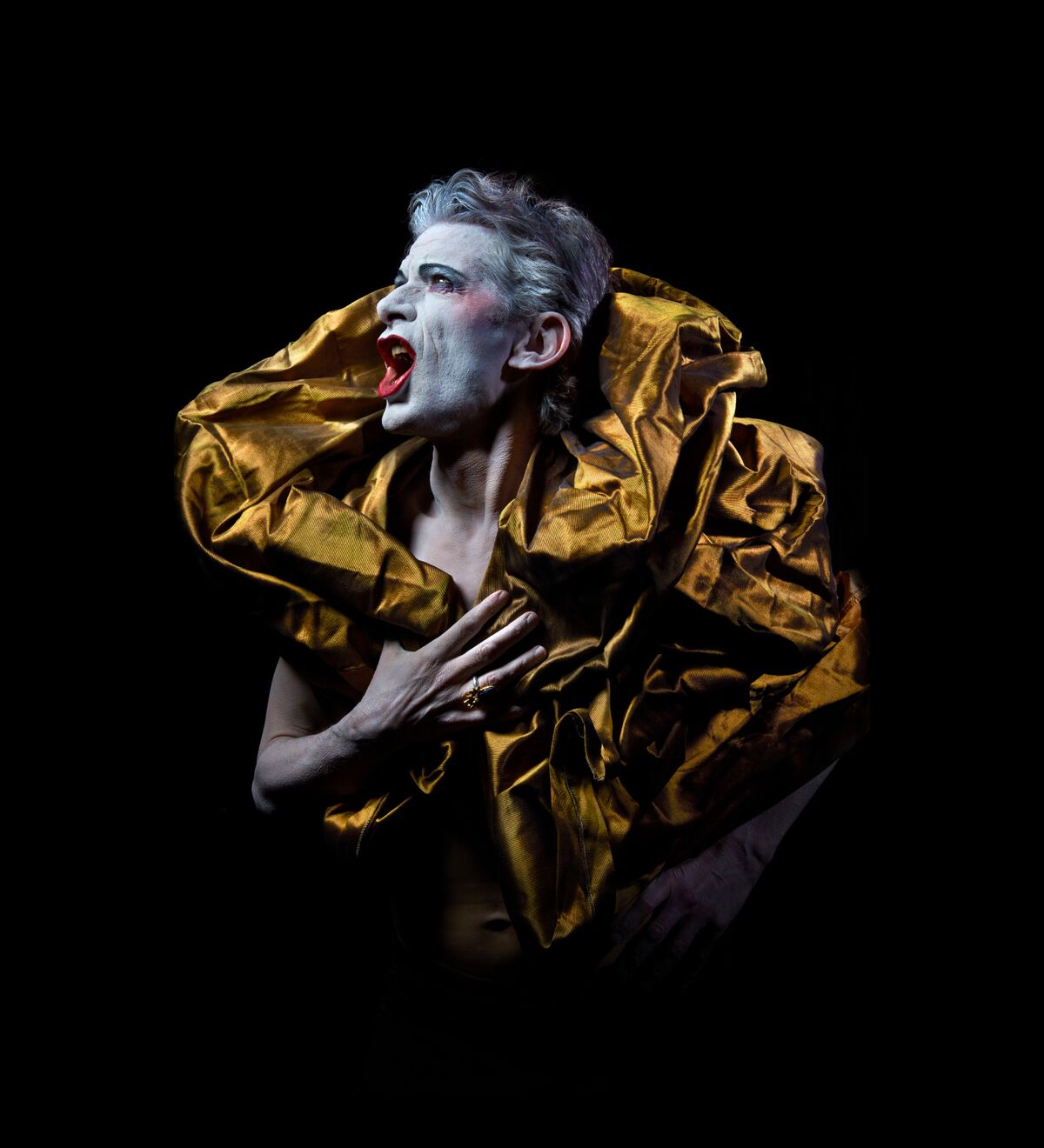Jean-René Lemoine’s acclaimed production of Medea, Written in Rage came to Brighton’s Marlborough Theatre last week, telling the story of a woman who takes revenge on her former husband by killing their two children, as well as his new wife. The production, itself a French reimagining of Euripides’s ancient tragedy, is translated into English, adapted and directed by Neil Bartlett.
The set was wonderfully simple: a single microphone front and centre from which Medea would deliver her monologue, with a clever array of backstage lighting and a smoke-filled stage wafting haze into the audience.
An arresting opening was, for me, the play’s greatest moment – and it really is spectacular. Perfectly utilising the staging and sound design, Francois Testory’s Medea emerges slowly and hazily from the back of the stage, cloaked and eerily formless. The opening lines of monologue set the audience up for what they are in for – a chance for this misunderstood character to tell her side of the story, sparing no detail of violence or confessional honesty.
Special mention must be given to the costuming and sound design. A simple cloth served as a garment which beautifully paralleled the emotional state of its character, adapting as hood, cloak and shawl to heighten the tragic gravitas of each moment. Phil Von François’s musical and sound performance is wonderfully creepy and beautiful in equal measure, and the audience reacted well to the fourth wall-breaking interplay between acting and musical performers.
In storytelling terms, however, the play starts to lose its shine. I don’t want to view this production with too much comparison to the traditional story – but in places it’s hard to escape the conclusion that certain creative decisions have been made which actively reduce its emotional power. Immediately after killing her two children, this Media chronicles her swimming around in the pool in which she has drowned them, and declares “I feel great”. Either by choice or carelessness, some of the subtlety is lost, and despite what the staging would suggest, I found even less explanation of why she behaved as she did; in the end, I’m not at all sure whether the audience is invited to sympathise, pity or resent its character. Possibly all three, but not in a way which seems to cogently tie together those contradictions. I found myself sympathising with this Medea less at the end of the play than I did at the start, which – for a production letting her tell her side of the story – seems like a shortcoming.
Similarly, the climax of the play seemed a little rushed, and as a consequence ironically little focus is given to her feelings of isolation in a foreign land. Perhaps the play didn’t feel the need to spend time on this because of an expectation that audience members are familiar with the story, and a view that contextualising the before and after of the event would add emotional power.
What can be said about casting a man as the central performance? Having given this some thought, I can’t really come down one way or the other. Perhaps some viewers will find added meaning in the casting choice – personally I do not think it either contributed meaningfully nor took anything away from the story, beyond giving the opportunity for Francois Testory to showcase his androgynous and wide-ranging acting chops. My best guess is that the Medea story is often understood as a gendered characterisation associating femininity with passion and sentimentality, so casting a man is an attempt to universalise the play’s meanings. Either way, the performance is gripping, and is undeniably what keeps the audience engaged for the full 80 minutes.
Speaking to culturewhisper.com, Bartlett said this Medea had “all the grandeur and rage of Greek myth, but at the same time she seems very real”. In the end, I’m not sure it hit the heights of either aspect in the way I wanted, but there’s enough of both to make for an arresting and unfamiliar evening of theatre.
Featured Image: Manuel Vason

